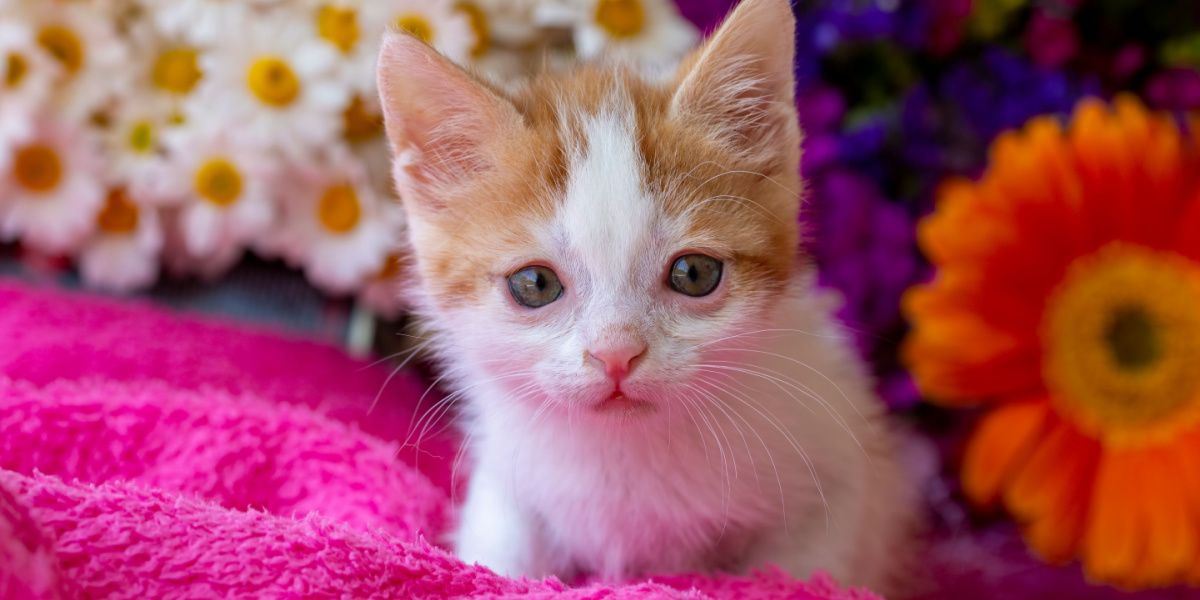
Is it possible for cats to be born with Down Syndrome? This question was made famous by Monty the cat, who was born with facial structure and health problems that were similar to those that a human born with Down Syndrome would exhibit.
However, cats cannot physically have Down Syndrome.
Down syndrome, also known as Trisomy 21, is a common genetic condition in people that results from the presence of an extra copy or partial copy of chromosome 21. Cats cannot have Down Syndrome because they don’t have chromosome 21. Cats only have 19 chromosomes, therefore they literally cannot have an extra chromosome 21.
Conditions in Cats Similar to Down Syndrome
Although they cannot have Down Syndrome, cats can have chromosomal disorders, although these are rare. One condition associated with an additional chromosome in male cats is a condition that is similar to Klinefelter syndrome in people. With this condition in cats, male cats carry an extra chromosome that affects the color of their coats. This causes these cats to have calico or tortoise-shell fur, a hair color pattern normally only expressed in female cats.Down Syndrome-like symptoms in cats are usually indicative that something occurred in utero that affected normal development of the kitten. If a kitten is infected with the panleukopenia virus while in utero, that infection can result in many of the abnormalities commonly associated with ‘feline Down Syndrome’.
Other infections, birth defects, exposure of the mother cat to toxins while pregnant, and diseases of the neurological system, like distal polyneuropathy (disease of nerves) or feline dysautonomia (degeneration of the autonomic nervous system), can mimic the signs of Down Syndrome.
An example of this is cerebellar hypoplasia, a condition that causes abnormal development of the part of the brain called the cerebellum. Cerebellar hypoplasia can cause a cat to have difficulty eating food and walking, which can be confused for Down Syndrome. Furthermore, kittens that experience head and/or face trauma can seem to have been born with abnormal facial structure and neurological problems.
Symptoms Similar to Down Syndrome
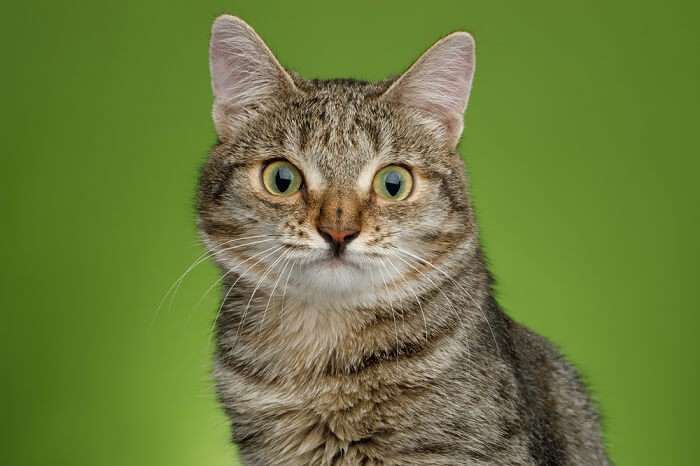
Some cats have abnormalities, like heart problems, broad noses, and difficulty moving, that make them appear to have Down Syndrome.
Despite the popularity of internet searches involving ‘feline Down Syndrome’, it is important to note that veterinarians do not recognize Down Syndrome as a condition in cats because there is no scientific basis to do so, and genetic testing does not support the claims.
Nevertheless, there are many cats out there that do exhibit abnormalities in physical characteristics and behavioral changes that may lead people to think that their cats have Down Syndrome.
Symptoms that can be mistakenly be associated with down syndrome include:
- Wide-set eyes that are upturned
- Broad noses
- Small ears or abnormally shaped ears
- Low muscle tone
- Heart problems
- Difficulty walking or eating
- Difficulty urinating or defecating
- Loss of hearing or vision
What to Do if Your Cat Shows Down Syndrome-Like Symptoms?
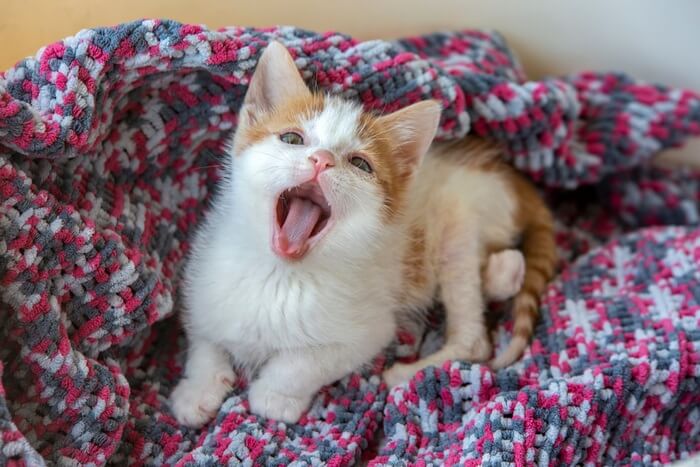
If your cat shows abnormalities that resemble symptoms of Down Syndrome, you should consult with a veterinarian and ensure that your cat gets the right care.
If your cat exhibits any similar symptoms to the condition, it is important to consult with a veterinarian. Your cat may have underlying health problems which require additional care. In order for your cat to be as healthy and as happy as possible, you will need a good veterinary care team to provide regular veterinary care.
If your cat has mental or physical disabilities, then it is up to you to protect your cat from potential hazards. Cats with additional needs should be kept inside, and only taken outside under your supervision and on a leash or in a controlled environment that prevents escape. If your cat has vision or hearing impairment, then you will need to adjust for those disabilities as well. Your home will need to be cat safe: for example, if you have a pool, or stairs, then you may need to bar access to these areas.
Some cats need help with basic needs. If your cat has difficulty with basic functions, such as eating, cleaning themselves, or going to the bathroom, then you may need to help them.
If your cat has additional health problems, such as heart murmur, or hormonal conditions such as diabetes, then your veterinarian will be your best support for giving your cat the care he or she needs to thrive.
So can you still keep your cat’s social media account and share stories and pictures, even if your cat doesn’t have a chromosomal defect? OF COURSE!
Think of it as an opportunity to educate your followers about how to care for a special cat, and the joys of doing so. In doing so, your journey with your own kitty just might become somebody else’s survival guide.
Frequently Asked Questions
How can you tell if your cat has Down syndrome?
Technically, cats can't have Down Syndrome because they don't have chromosome 21, where the genetic defect is located. Cats only have 19 chromosomes, and therefore cannot have Down syndrome. Cats can suffer from other neurological or physical conditions that can mimic the signs of Down Syndrome, however.
Can cats have mental disabilities?
Cats can definitely have mental disabilities. If a developing kitten embryo is exposed to infections or toxins during pregnancy, that can impact mental ability. Cats that experience head trauma can also develop mental problems.
What is wrong with Monty the cat?
Monty the cat is famous for his broad nose and Instagram account. While internet accounts declare that he was born without a nasal bone, giving him his characteristic look, it is not known whether he was born with the abnormality or developed it secondary to infection or trauma, both of which can also cause facial bone abnormalities.
Does Grumpy Cat have Down syndrome?
Grumpy Cat does not have Down syndrome. Cats cannot have Down syndrome because they lack chromosome 21, the chromosome where the genetic defect is located. Cats only have 19 chromosomes.
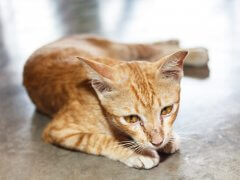
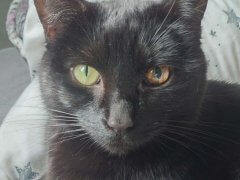
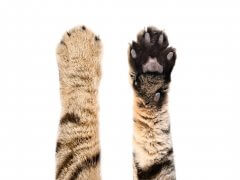
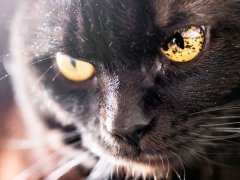
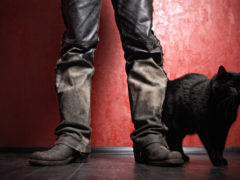
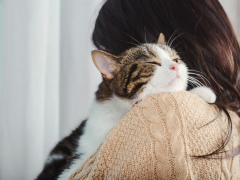
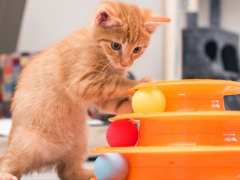
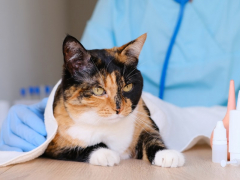
I’m trisomy’ed 21 about this video/article. the question isn’t Werther’s or not a cat can have a humans biological chromosomal disease/irregularity. It’s if a cat can have a genetic mutation to their chromosomes, (which we acknowledge are made of different DNA), could have extras or less that result in the cat displaying certain traits, or the same symptoms as a human with down syndrome. So I think i would disagree, with the no. It’s not “can a cat have a human disease?”. Obviously no.